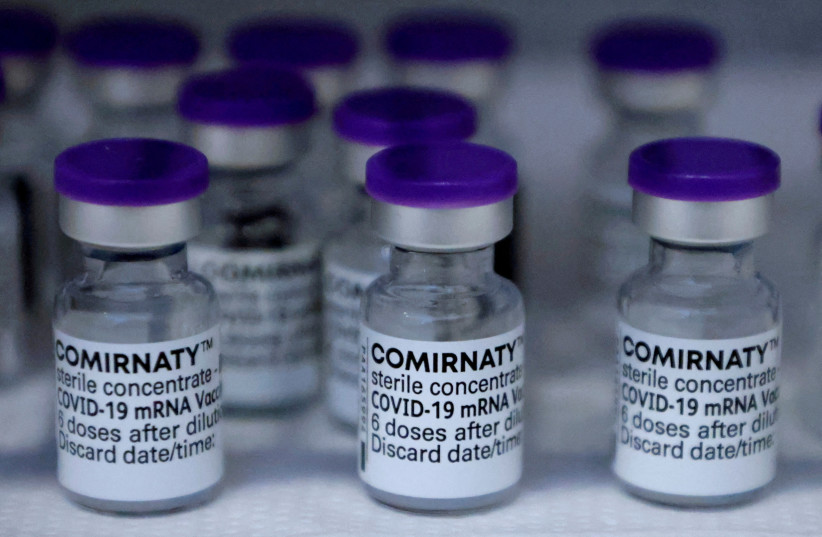Research published on Wednesday in Science: Translational Medicine generated a new type of COVID-19 vaccine that could be even more effective against the Delta and Omicron variants than existing vaccines.
Ever since the outbreak of SARS-CoV-2 in late 2019, scientists all over the world have been racing to create safe and effective vaccines and treatments for the highly infectious respiratory illness.
“Given that large segments of the human population have been vaccinated with the first-generation vaccines or infected with SARS-CoV-2, it is important to also assess our combined vaccine approach as boosters in animal models or humans with preexisting immunity.”
Study authors
Pfizer, Moderna and Johnson and Johnson all developed vaccines against COVID which were distributed worldwide throughout 2021 and significantly brought down the infection rate and the death toll. However, as more of the population became immunized, the virus mutated producing the Delta variant in the fall of 2021 and the Omicron variant in early 2022.
This September 2022 peer-reviewed study puts forward the results of a new vaccine tested on rodents.

Research methods and conclusions
"Emergence of SARS-CoV-2 variants of concern, including the highly transmissible Omicron and Delta
strains, has posed constant challenges to the current COVID-19 vaccines that principally target the viral spike
protein (S)," explained the study authors. "Here, we report a nucleoside-modified messenger RNA (mRNA) vaccine that expresses the more conserved viral nucleoprotein (mRNA-N) and show that mRNA-N vaccination alone can induce modest control of SARS-CoV-2."
The scientists vaccinated hamsters, "combining mRNA-N with the clinically proven S-expressing mRNA vaccine induced robust protection against both Delta and Omicron variants," per the study. They then exposed them to the Delta and Omicron variants, and found their new vaccine formula to be very effective.
“Given that large segments of the human population have been vaccinated with the first-generation vaccines or infected with SARS-CoV-2, it is important to also assess our combined vaccine approach as boosters in animal models or humans with preexisting immunity,” the study authors pointed out.
Study authors concluded that their combined vaccination approach provides broader protection against the SARS-CoV-2 variants.
